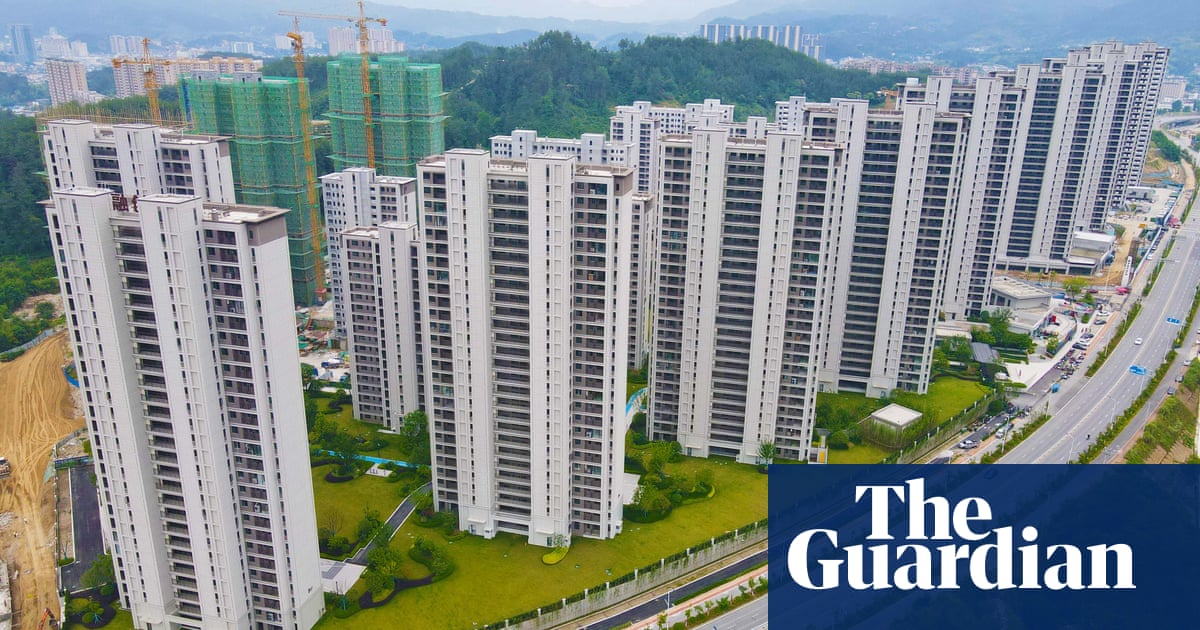- cross-posted to:
- worldnewsnonus@lemy.lol
- cross-posted to:
- worldnewsnonus@lemy.lol
The industry that has traditionally powered about a quarter of GDP has been in a downward spiral that policymakers have struggled to halt
All across China, from Beijing in the north, to Shenzhen in the south, millions of newly built homes stand empty and unwanted. There were nearly 391m sq metres of unsold residential property in China as of April, according to the National Bureau of Statistics. That is the equivalent of Manchester and Birmingham combined – and then some – sitting as vacant, unwanted property.
This glut of idle property has caused a headache for the government, shaken the world’s second largest economy and raised tensions over the purpose of housebuilding in a nation where property investment had been viewed as a safe bet.
Since the real estate sector was sent into a tailspin in 2020, caused by the pandemic and a sudden regulatory crackdown, the industry that has traditionally powered about one-quarter of GDP has been in a downward spiral that policymakers have struggled to halt.
The crux of the problem is that, with shaky faith in the economy and big property developers failing to deliver on paid-for apartments, potential homebuyers are keeping their money out of the market.



The construction quality is… shall we say, not great. Pretty sure lots of it would not pass code in the states - let alone Europe, Korea, or Japan.
That’s okay, I don’t think we have teleportation technology yet anyway.
That shouldn’t be a problem, most landlord owned properties don’t pass code here either